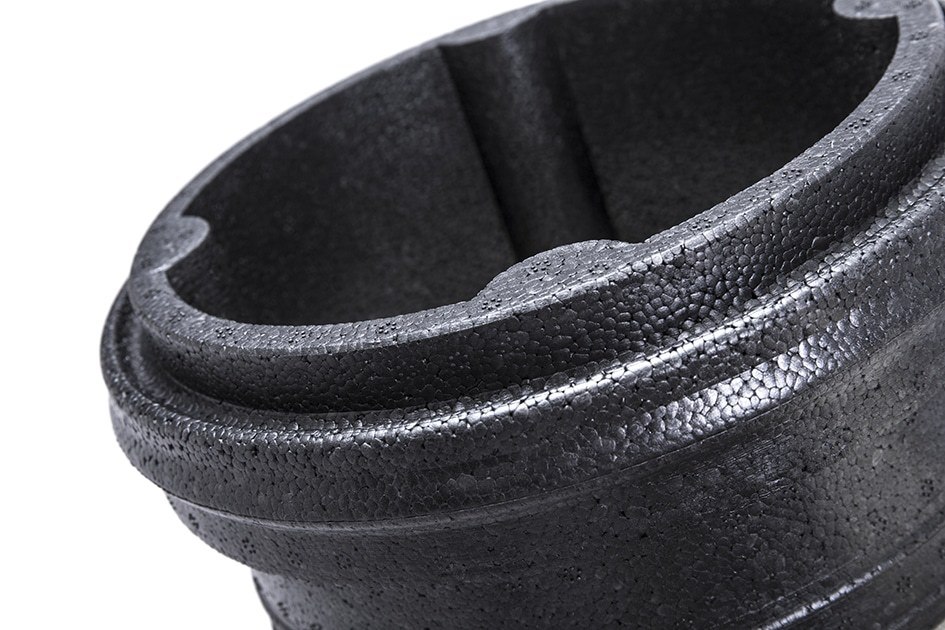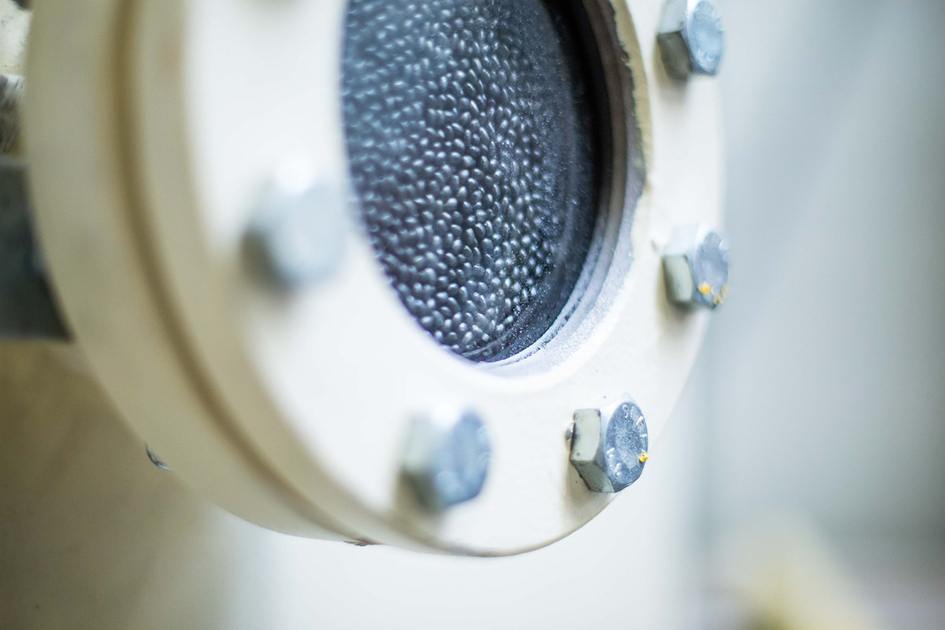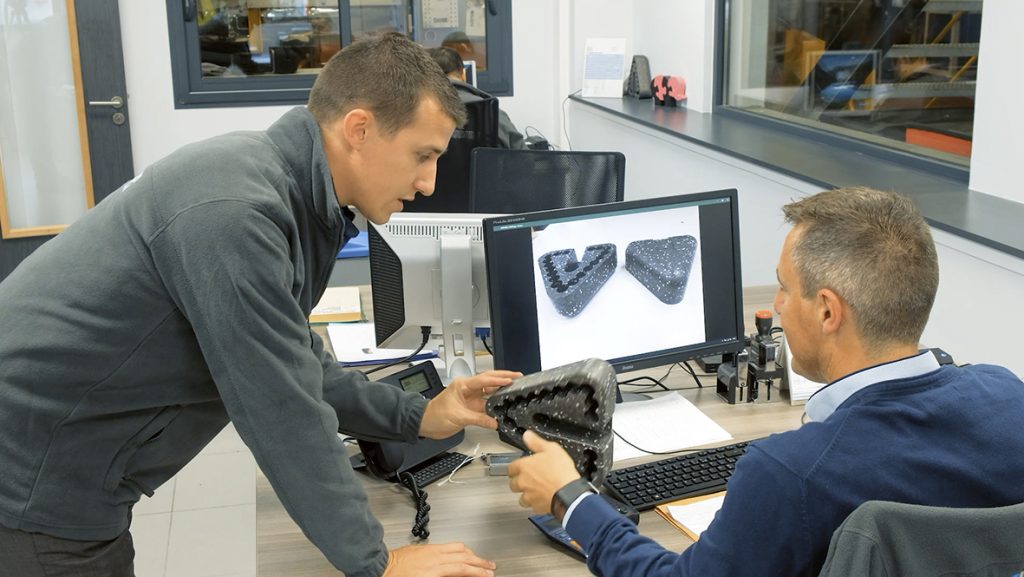Thermoplastics have become a crucial part of many manufacturing processes, as well as playing a huge role in improving the efficiency of certain structures such as any HVAC system. We analyze their exact composition, the main types of thermoplastics, how they are manipulated through injection molding, and their main uses, such as the link between thermoplastics and HVAC systems.
What are thermoplastics?
Thermoplastics are plastic polymer materials that become moldable after being subjected to high temperatures and then solidify upon cooling.
Because of their particular molecular structure (they contain chemically dependent macromolecules), thermoplastics can also be melted and reshaped multiple times and are mechanically recyclable. These advantages have made them extremely popular materials.
In order to fulfill their purpose, thermoplastics are manipulated through different techniques, injection molding being one of the most common and effective to manufacture parts.
Some of the most common thermoplastics include acrylics, nylon, polyethylene, polypropylene, and polystyrene.
You might also be interested in: 7 things you must consider when choosing a plastic moulded part manufacturer
Types of thermoplastics used in injection moulding
ABS
ABS is an opaque thermoplastic that consists of three distinct monomers (Acrylonitrile, Butadiene, and Styrene), which generate light and flexible material ideal for injection moulding. Some of its most common uses include automotive parts, kitchen appliances or drain pipe systems.
Polyethylene
This thermoplastic polymer is extremely versatile and presents extraordinary ductility, resistance, and tensile strength. Plastic films or bags are two of its most common applications
Polycarbonate
Polycarbonate (PC) plastics are amorphous thermoplastics mostly valued for their resistance and transparency. They are used to manufacture certain automotive parts, lenses, or mobile phones, among others.
Polystyrene
There are many types of thermoplastics within the polystyrene family, including High Impact Polystyrene (HIPS) and Expanded Polystyrene (EPS).
The latter is widely used in the industrial world and is produced by expanding polystyrene beads through a steam process. The balls are transformed into fine spherical particles.
The material presents a number of properties that make it an advantaged alternative to other plastics:
- Expanded Polystyrene is 98% air, 2% polystyrene
- wide range of densities, from 8 to 150 grams per liter
- exceptionally light and flexible, yet durable
- EPS is safe and environmentally neutral
- excellent insulating and acoustic properties
- 100% recyclability.
Thanks to an injection moulding process, EPS can be converted into customized packaging and other components of various shapes and sizes, including parts for any HVAC system.
Polypropylene
A thermoplastic known for its flexibility, high resistance, and impact strength. Again, its expanded version (EPP or expanded polypropylene) is known as a trustworthy and well-tested material used in a wide variety of industrial applications.
Because of its manufacturing process, it offers a unique range of properties, which include:
- Lightweight
- Acoustical absorption
- Airtightness
- Thermal insulation
- Buoyancy
- Water and chemical resistance
- Exceptionally high strength to weight ratio
- 100% recyclability
Combined with other components and materials, EPP is successfully used to manufacture technical parts to combine strength and lightness and thus optimize manufacturing cost.
Thermoplastics: what is the injection moulding process like
Injection moulding is the most common process used to shape thermoplastics and fabricate plastic parts. The process is short (it can take between 2 seconds and 2 minutes) and requires the use of an injection moulding machine, adequate thermoplastics, and a mold.
The injection moulding process presents the following steps:
- Secure clamping of the two halves of the mould that will be used.
- Injection: the thermoplastic is introduced into the injection moulding machine and melted or injected quickly into the mould using heat and pressure.
- Cooling: the thermoplastic begins cooling when in contact with the mould and, as a consequence, solidifies.
- Mold opening and ejection: after a prescribed time, the part can be removed from the mould. If excess material is found, it is trimmed by using specific cutters.
Industrial uses of thermoplastics
- Automobile parts, consistently reducing their weight while producing durable and resistant parts.
- Protective packaging including drinking bottles, food packaging, and containers, or plastic bags. Thermoplastics are also ideal for customized packaging for electronic devices or appliances.
- Technical parts for HVACR: thermoplastics help optimize any HVAC system acoustic properties, reduce assembly costs, and minimize energy loss.
You might also be interested in: Plastic injection moulding solutions, advantages an benefits
Knauf injection molding technologies
At Knauf Appliances we are experts in thermoplastic injection moulding in order to produce customised parts for various industries.
Plastic moulding technology has been a Knauf core business ever since our creation, offering our expertise in EPP and EPS moulding through our 41 EPP/EPS processing plants, strategically located to best serve the supply chains of our most demanding international clients.
From our plastic injection plants in France and Poland we also made thermoplastic decorative parts, working also with gas injection technology, electronic moulding, water painting, masking, hot sampling, and pad printing to get the desired results.
Regarding the use of thermoplastics to improve HVAC systems efficiency, our exterior and interior injection moulded components for the HVAC industry are mainly manufactured from the following materials:
– Polystyrene (PS),
– Polypropylene (PP),
– ABS,
– PC,
– PC / ABS,
– PC / PMMA.
We are also in charge of manufacturing customized packaging and components for the automotive and appliances industries, using a variety of expanded foam materials including expanded polypropylene (EPP) and expanded polystyrene (EPS), and other special co-polymers. Thus, for the production of injection-molded automotive components, we efficiently process PC, PS, ABS, PC/ABS,PP/EPDM, PA6 GF30, PP GF30,PP+T and other thermoplastics.
Our 42 manufacturing facilities are accredited to a number of different certifications relating to sustainability, Quality Management, and health and safety. By obtaining and maintaining these industry-leading certifications we guarantee that our products and processes are in full compliance with international and national regulations and standards.
Industrial expertise, moulding know-how, and market experience are crucial for developing solutions based on thermoplastics. Our teams work closely with clients to evaluate their needs and define technical requirements for expanded foam products that meet their expectations.
After a thorough analysis and fluid communication with the client, we work on custom-designed foam solutions and design to cost-effective solutions, ensuring through our recommendations a suitable material choice and clear specifications for meeting both the quality and functional goals in the manufacturing of the parts.
Learn more about thermoplastics and how Knauf Appliances can help your business achieve its goals https://knaufappliances.com/contact/





